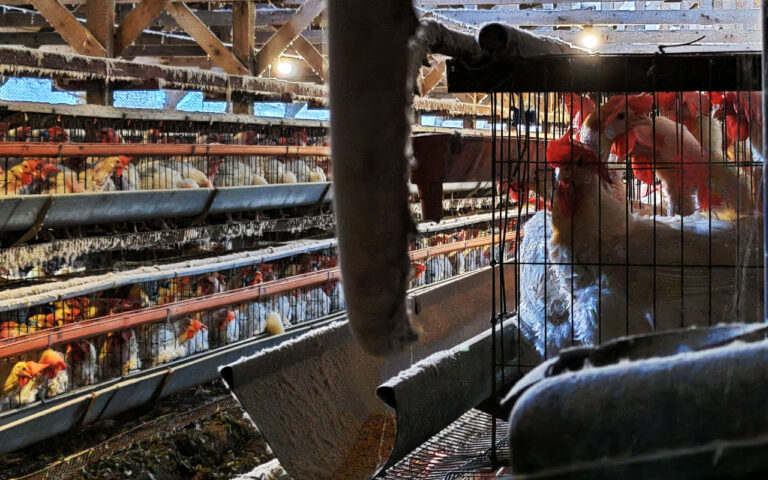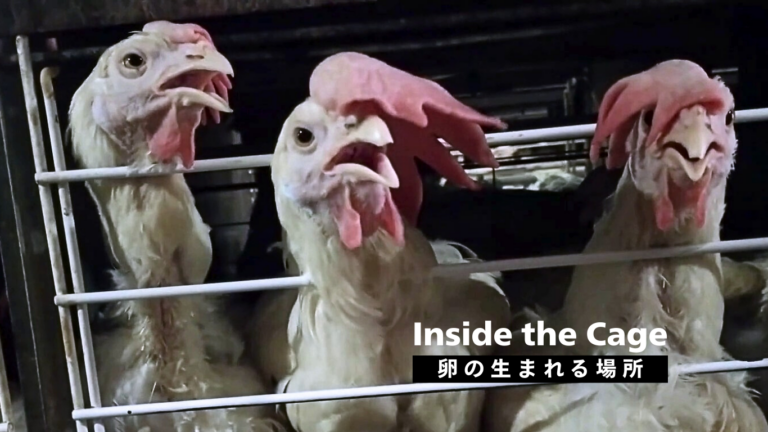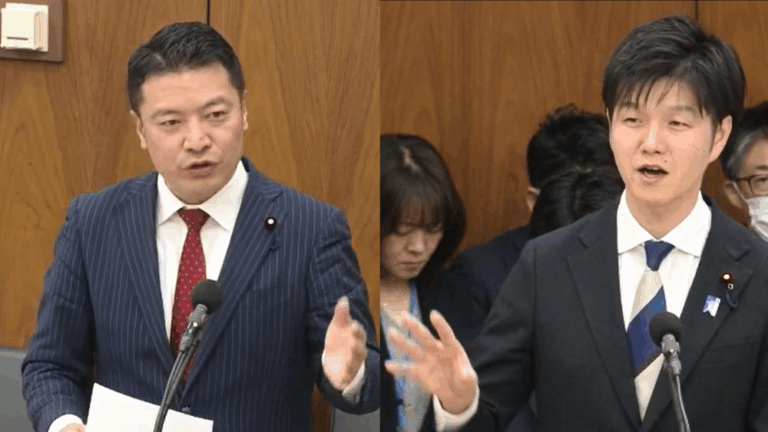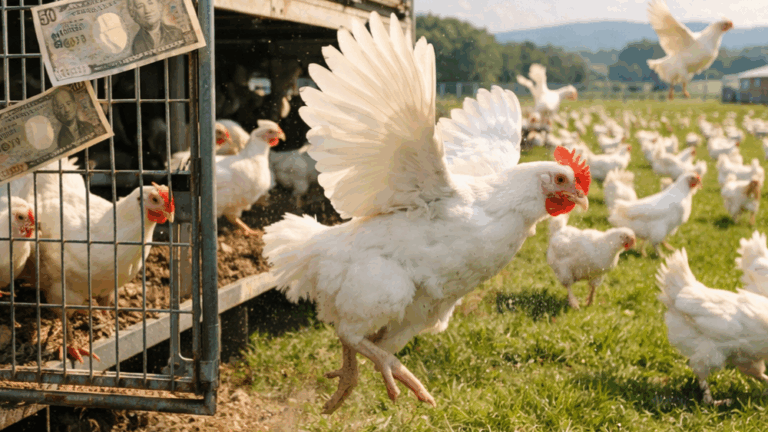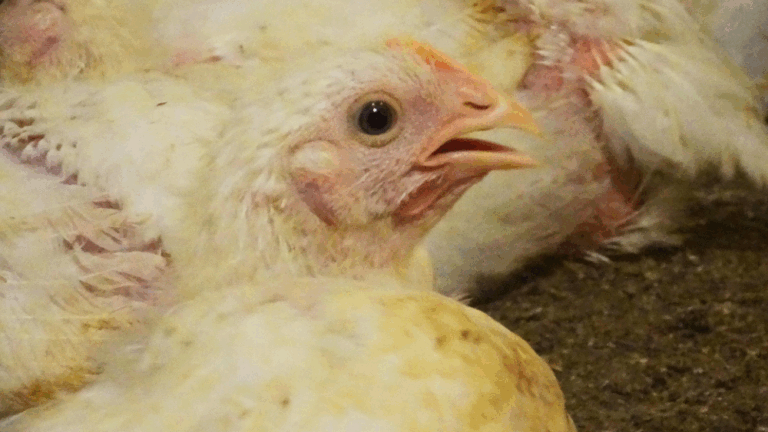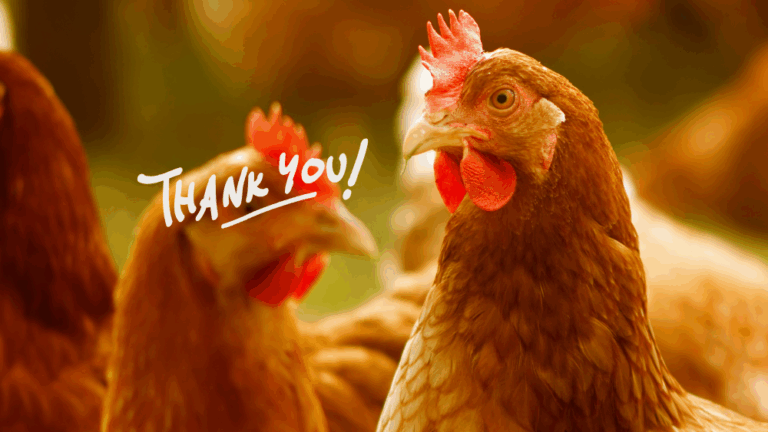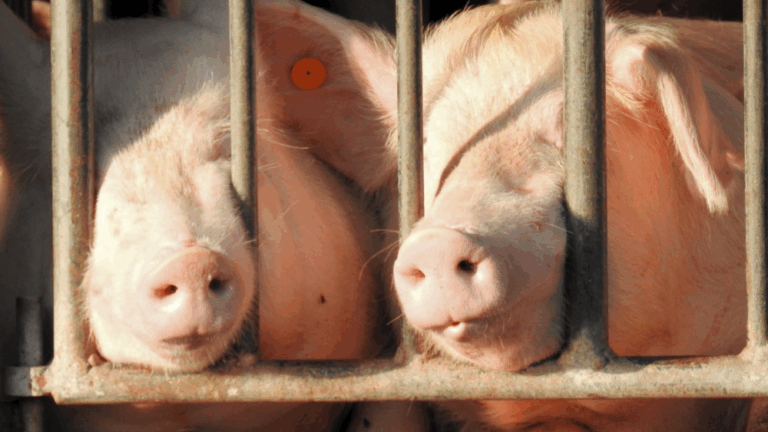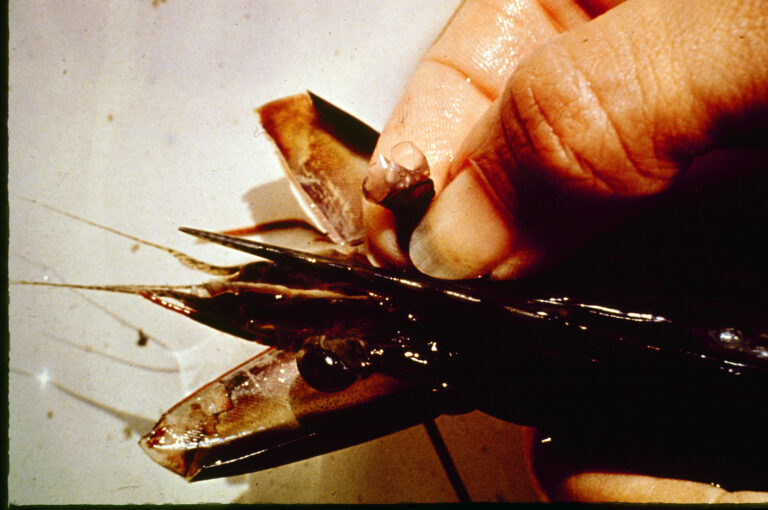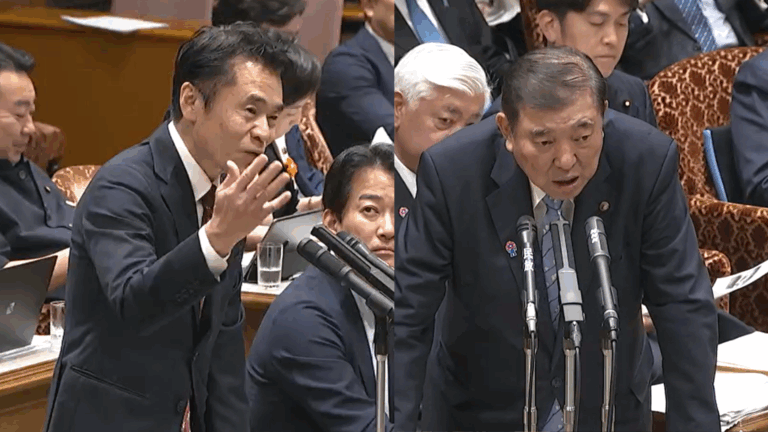The Tokyo Olympics and Paralympics will begin on July 23, 2021, under the ongoing Covid-19 pandemic. Controlling the pandemic is a major issue in the Olympic Games. However, there is another important issue that has not received full attention, namely, animal welfare.
Last month, Animal Rights Center Japan submitted a statement of request to the Tokyo Organising Committee of the Olympic and Paralympic Games (TOCOG) and the Cabinet Office. The statement insisted that standards for procuring livestock products for the Tokyo Olympics were insufficient and that battery-cage eggs, gestation-crate pork, and overcrowded chickens should not be provided in the Olympic Village.
While the TOCOG and the Cabinet Office did respond (quoted below) to the ARCJ’s concern, unfortunately, their answer did not imply that they would change their procurement policy. Moreover, they did not recognize the inadequacy of their policy in terms of animal welfare. According to the response, they considered various opinions in deciding the policy and would not revise it.
We are very puzzled.
The Olympic and Paralympic Games are held using a lot of tax money, and were an opportunity to sell Japan to the world and get people to feel radiant. However, does it bring any benefit to adopt the standard that maintains the status quo of domestic animal agriculture?
Past Olympic and Paralympic Games in London and Rio adopted stricter procurement policies, such as prohibiting eggs from battery cages. In this sense, the Tokyo Olympics is behind the global standard. The TOCOG will raise awareness for human rights and environmental issues during the Games, but not for animal welfare.
Despite being an international event, who will benefit from adopting animal welfare standards that are lower than past games and exposing that it is Japan’s animal agriculture that is far behind the world standards?
Is there any advantage to feeding top athletes around the world the livestock products produced from environments of animal suffering (battery cages, sow stalls, and overcrowdedness)?
As a host country of the Olympics and Paralympics, Japan will leave cultural as well as economic and physical legacies. In terms of animal welfare issues, will the Tokyo Olympic Games not make any advancement?
We used to think that a country hosts the Olympics and Paralympics not only because it’s a festivity for athletes, but also because it leads to advancements of the country in various areas. It seems that the economic legacy is no longer what we can hope for, and in the future, if we do not leave the legacy regarding the environment including animals, it will be a tournament that will only be a burden. Legacy is not born from maintaining the status quo. Maintaining the status quo leaves behind a negative legacy, just the bad relics of the past.
To the organization or the government that has no aspiration to improve, how can we the citizens deliver our voices…?
Still, we can’t stop. Let’s move citizens, businesses, schools, etc. At some point, the era will come when producers and the government will follow. We shouldn’t have expectations in public institutions. Let’s change the minimum standards for livestock products to cage-free, sow stall-free, and Better Chicken. Let’s end the era when anything can be done to them because they don’t speak human language. It’s an era in which we must have a minimum of ethical responsibility. If we can’t do that, we won’t be able to stop hurting people, either.
This global event may be an opportunity for us to realize that Japan’s animal welfare policy for the livestock industry is far behind that of other countries. Share and discuss this issue with your friends, family members, and teachers/students. With our own hands, let us leave a great legacy for animals and citizens.
– Reply from the TOCOG:
In preparation for the 2020 Tokyo Games, we needed to consider the preparation period for producers and formulate procurement standards as soon as possible. Accordingly, we started studying these details since the summer of 2016, three years before the Games. In 2017, we formulated a “Sustainable Procurement Code” that includes livestock product procurement standards.
We carefully discussed the formulation of livestock product procurement standards in a working group consisting of environmental NGOs and CSR experts, as well as members from research groups, government agencies, industry groups, and consumer groups related to livestock products. At the same time, we collected public comments while listening to the opinions of various stakeholders. To ensure transparency, we also published the minutes of the working group discussions.
In the discussions in the working group, we considered important points from the perspective of sustainability and summarized these into four aspects: food safety, environmental protection, occupational safety, and animal welfare.
Among these aspects, there were various opinions regarding animal welfare.
We received an opinion that cage-free eggs should be used, and were also introduced to menu without animal products.
Meanwhile, we received an opinion that what’s important in animal welfare is ensuring that livestock animals are in healthy states by properly providing high-quality feed and water and closely observing and grasping their conditions rather than focusing on the structures of facilities and equipment. There was also the opinion that the code agreed on by the World Organisation for Animal Health (OIE), comprising 180 countries and regions, is a global standard and that we should adopt the rearing management guidelines that comply with the code.
Another opinion was that the idea of animal welfare is not yet familiar in Japan, and thus it is important to spread the idea of animal welfare first.
As a result of repeated examinations while receiving such various opinions, after discussions by the experts, we decided that the procurement standard should be based on the “Rearing Management Guidelines Corresponding to the Concept of Animal Welfare” formulated by Japan Livestock Technology Association.
In this way, we hope that you will understand that the standards have been established through careful consideration by a process that ensures transparency and with the participation of various stakeholders.
In addition, as food and beverage providers are already procuring ingredients based on the current procurement standards, we are not considering revising the procurement standards for this event.
For your reference, we also have menu options that consider vegetarian athletes in the Olympic Village based on the basic strategy for providing food and drinks. This strategy was formulated while listening to the opinions of the athletes and food and beverage experts.
Regarding animal welfare, we are aware that there are various opinions and ideas. We likewise understand that such opinions and ways of thinking will change gradually with the times and should be discussed by taking time to consider changes in the consciousness and needs of producers and consumers.
As you know, we are a temporary organization established to hold the Olympic and Paralympic Games, and we are not in a position to take responsibility for the development of the Japanese livestock industry. We hope that this event will lead to deepening interest and efforts regarding animal welfare.
Furthermore, we will consider recording the opinions we have received from you in the reports to be issued after the Games.
Thank you for your understanding.
Tokyo Organising Committee of the Olympic and Paralympic Games
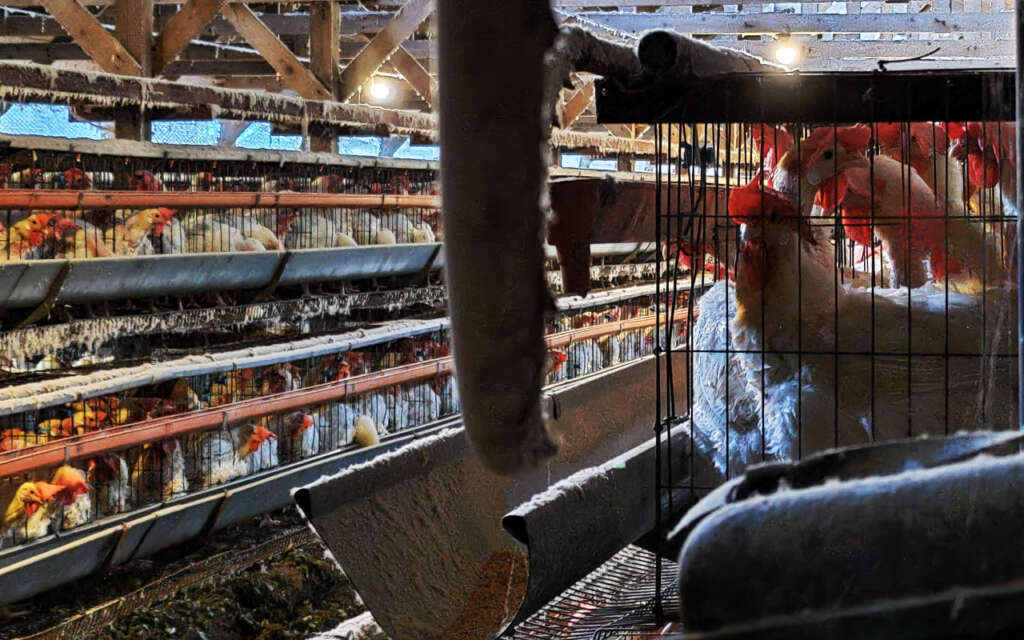
List of past ARCJ articles regarding the Tokyo Olympics
2016/10/05 Animal Welfare at the Rio Olympic & Paralympic Games
2016/11/03 No Legacy made at the Tokyo Olympics? Will animal welfare level lower?
2016/12/16 Public comments: Tokyo Olympics & Paralympics
2017/03/25 Tokyo Olympics & Paralympics: Downgrading Animal Welfare Issues (English)
2017/04/14 JGAP Certificate Issued, Not Promising Animal Welfare (English)
2017/04/16 JGAP revision soliciting opinions – Let’s ask for strengthening of animal welfare!
2017/09/22 Tokyo Animal Cruelty: Consider animals for the Olympics! For Tokyo Olympics that’s kind to animals: TOKYO ANIMAL CRUELTY
2018/01/16 News Reports on Animal Welfare for the Tokyo Olympics and Paralympics (English)
2018/02/08 Petition submitted to Cabinet Secretariat: Please protect animal welfare at the Tokyo Olympics (English)
2018/08/01 10 Olympic Medalists raise voices, demanding animal welfare at the Tokyo Olympics (English)
2018/11/05 Livestock products at the Tokyo Olympics 2020, cage-free and stall-free not included in criteria
2019/03/13 Tokyo Olympics, content with low animal welfare?
2019/03/14 Tokyo Olympics: far from giving great impressions of Japan – it may have opposite effects? (English)
2021/06/17 Tokyo Olympics, will animal welfare for eggs and meat remain low?


